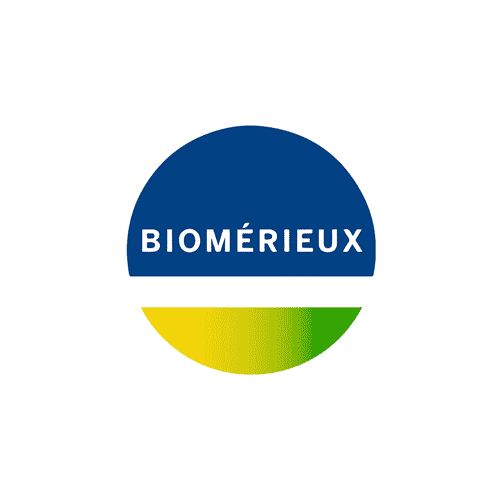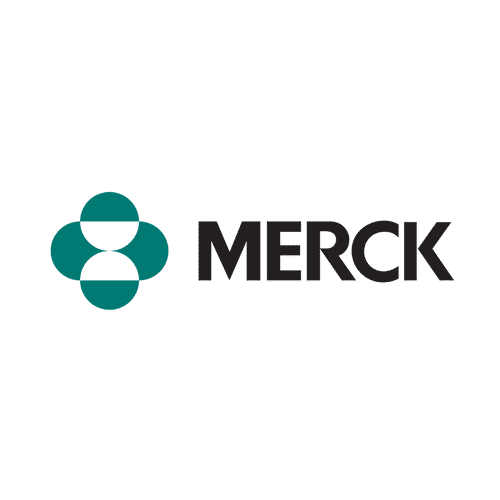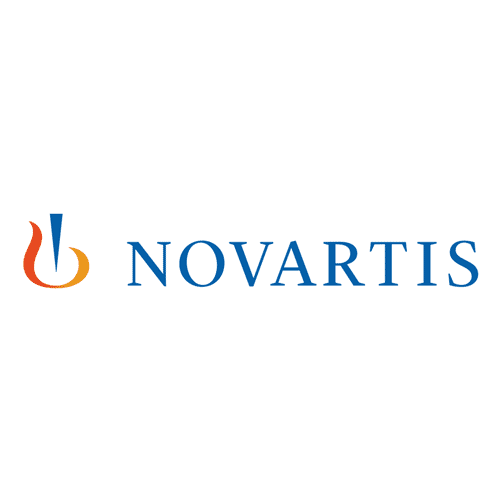
Advanced computing

Accelerate your R&D activities with quantum computing
Our specialized team explores the opportunities offered by the digitalization of R&D activities in the pharmaceutical industry, and helps healthcare players understand the challenges and opportunities linked to advanced computing in R&D.
They trust us









The challenges related to advanced computing in research and development
Advanced computing in R&D is already a reality in the pharmaceutical industry where computer tools are key elements used for the discovery and development of new drugs, whether in silico modeling of molecular structures, modeling interactions between a drug and its target, metabolism simulations, response prediction, etc. Nevertheless, these models are still limited to molecular structures or relatively simple interactions.
Quantum computing in R&D, on the other hand, goes one step further. Several industries are due to benefit from advances in quantum computing in the coming years, with the pharmaceutical industry likely to reap the greatest impact. The technology is expected to transform the early stages of pharmaceutical research and development in the coming decades, depending on how companies make the most of it. The technology is still emerging and is gradually reaching a state of maturity before being commercialized.
Quantum computing will make it possible to address certain challenges in the pharmaceutical industry. It will also create new ones, particularly in the process of drug discovery and design.
The challenges of advanced computing technology in pharmaceutical research and development include:
The development time of a drug, from discovery to launch, is a very expensive process for drug companies, and is commonly valued at over USD 1 billion for a drug, with success rates of less than 10% between entry into clinical development and launch. Today, the profitability of R&D investments therefore relies on a handful of successful drugs. Advanced computing in R&D could drastically reduce these costs. By enabling precise modeling of drug-target interactions and more efficient screening of very large virtual libraries, advanced computing could more effectively guide the synthesis of new compounds and reduce the need for particularly expensive in vitro testing.
What is the process to set up an advanced computing system in its R&D processes? What are the best practices of pharma players who have already tested these new methods?
From its discovery to its launch, a drug requires more than 10 years to be developed. Quantum computing could dramatically reduce the development time of a drug and therefore speed up the introduction of new drugs onto the market. Likewise, this technology would make it easier to use pre-approved drugs for new applications. Quantum computing makes it possible to perform hundreds of millions of comparisons of complex molecules simultaneously: the correspondences between the molecules are examined, and the positive as well as negative effects of a new therapeutic approach can be predicted. The design time as well as the results are improved.
What will be the first therapeutic areas to benefit from the acceleration of the drug discovery process enabled by quantum computing?
The integration of advanced computing within the pharmaceutical industry requires setting up a new organization. New skills and new needs for highly-qualified scientific staff and technicians will be essential. However, these skills are rare at present and even more so in quantum computing. The first companies to position themselves in this area could thus acquire a significant advantage over their competitors in terms of skills. In addition, pharmaceutical companies must now collaborate with new research partners and new industrial players (in artificial intelligence, machine learning, etc.). The agility of the working methods put in place will be the key to testing promising therapeutic candidates more quickly and efficiently.
What new organization should I put in place within my company? Which new profiles should we recruit?
in order to make quantum computing technology a reality for pharmaceutical R&D, the development of suitable software and algorithms is necessary. Indeed, the software and algorithms of traditional computing do not work in the same way. New players are therefore entering the specialized quantum computing market for drug discovery such as Rahko, ProteinQure, GTN Ltd, Menten AI, etc. Long-standing players in the IT market are also investing in the quantum computing R&D market, such as Google, IBM and Honeywell.Finally, new companies are entering the quantum computing market such as D-Wave, Rigetti and Xanadu Quantum Technologies. All of these companies are potential partners for the pharmaceutical industry.
Will the arrival of quantum computing allow new players, outside the world of the pharmaceutical industry, to position themselves in the drug discovery market?
Advanced computing in R&D is already a reality in the pharmaceutical industry, and quantum computing appears to be very promising for pharmaceutical research and development.
Although the technology is not yet fully mature, some pharmaceutical companies are already positioning themselves.
- Biogen is working with quantum computing software company 1QBit as well as with Accenture Labs to develop an application for accelerating drug discovery.
- Boehringer Ingelheim is the first pharmaceutical company to have partnered in early 2021 with Google Quantum AI to develop applications for the simulation of molecular dynamics.
- Roche is working with Cambridge Quantum Computing, a quantum software company, to design R&D algorithms, particularly for research into Alzheimer’s disease.
- BMS made a prepayment of USD 50 million to Exscientia to extend the collaboration started in 2019 with Celgene aimed to accelerate the discovery of drug candidates in 7 therapeutic areas, in a deal that could ultimately generate up to USD 1.2 billion.
How we support you in your projects related advanced computing in R&D
Supporting technological innovation for more than 25 years, Alcimed helps its clients on the themes of advanced computing in R&D as well as quantum computing in R&D. We are already supporting several players in the pharmaceutical industry in their R&D digitalization issues using such computing tools and in silico experiments.
Examples of recent projects carried out for our clients in advanced computing
Mapping of actors present in the in silico sector and having advanced computing in pharmaceutical R&D applications
The R&D division of one of our clients, a leading player in the pharmaceutical industry, wanted to identify potential partners in the in-silico field, meaning offering complex calculation tools and computer models.
In order to support our client in achieving this objective, our teams have mapped out in-silico players, offering pharmaceutical applications. Through an exhaustive bibliographic search and in-depth interviews with several opinion leaders in the sector, our teams were able to identify the main trends in the sector, the most promising applications and approaches, as well as obtain a precise vision of the main players active on the subject. The market dynamics of the next 3 years were also studied, as well as the different technologies meeting our client’s criteria.
Finally, the players in the sector identified were described on the basis of the technologies and offers proposed, the quality of their proofs of concept, their applications, their business models and their already existing partnerships.
Identification of the opportunities offered by artificial intelligence for the R&D activities of a player in the pharmaceutical industry
Our team supported a leading pharmaceutical player in analyzing the opportunities offered by the use of artificial intelligence solutions in its R&D processes. The objective of our teams was to make our client’s teams aware of the latest developments in the academic world and competing pharmaceutical companies in the field.
To do so, we carried out a state of the art of AI in R&D in the world, presenting the field of possibilities illustrated by concrete cases of competitors. Following this initial work, we supported our client in the integration of artificial intelligence technologies int its R&D activities, and helped it launch first internal pilot projects.
Search for Advanced Computing service partners to outsource the analysis of the translational R&D data pipeline of a pharmaceutical leader
The translational and bioinformatics R&D team of one of our clients, a top 10 pharmaceutical player, conducts advanced analyses on the integration and interpretation of very large multivariate data sets from different technological platforms (e.g. immunohistological, genomic and genetic, clinical, cytometry etc.).
Faced with the increase in their activity and the need to maintain very high quality standards and to resolve the limitations of certain internal developments, our client called on our team to explore and qualify the existence of partner companies to which they could delegate part of their data pipeline to analyze. The needs concerned Advanced Analytics approaches in 3 specific areas (NGS, multiple genomic annotation, Cloud Computing Biostatistical Analysis Framework) and with high technical constraints of environment and collaboration, human skills and business stability.
After defining very precisely the constraints and the latitude zones, we carried out two stages of screening and profiling of candidate companies, before carrying out directly with them and their ecosystems an in-depth analysis in order to define the most relevant partnerships, their advantages and disadvantages. Finally, we supported our client in the convergence towards a final selection of partners to be engaged during a workshop. Not only were these partnerships materialized, but our client asked us to reproduce a similar approach in other areas of Advanced Computing skills!
Valuation of a high-performance computing platform in the fields of Health
We supported a start-up from a large Research Institute in Computer Science and Artificial Intelligence, to define its priority application markets and its development strategy in the healthcare industries.
This company had developed an innovative neural network technology and a calculation preparation methodology allowing a very significant increase in processing power (computing) as well as an intelligent parallelization of the analyzes. It was initially positioned in the fields of Physics and sought to open a new development path towards Health.
We helped them first identify and segment, in the Healthcare industries, the applications relevant to their approach. Then, through a field investigation and a multi-criteria analysis, we selected priority areas.
Finally, we helped them, in the fields of application selected, understand the profiles of the companies and functions to be approached as well as define for each field the value proposition that would echo the concrete needs identified with them.
Mapping of AI solutions for protein design in drug discovery for a global pharmaceutical company
In response to our client’s, a top pharmaceutical player, interest in leveraging artificial intelligence (AI) for their drug discovery, Alcimed performed a comprehensive mapping project to identify and characterize the players in the field.
Our strategic exercise focused on the landscape of AI solutions specifically tailored to protein design. Through a comprehensive landscape mapping, we identified companies with expertise in leveraging AI and machine learning for tasks such as predicting protein structures, performing in silico screening, and designing antibodies.
The exploration of the AI landscape helped us to identify potential opportunities and solutions for our client´s drug discovery program. Our approach ensured that our client remained at the forefront of drug discovery innovation and was prepared for future success.
Development of a pharma player’s AI/ML strategy for R&D
Alcimed worked with a pharma player to develop their artificial intelligence (AI) and machine learning (ML) strategy for their research and development (R&D) activities.
Our approach involved improving internal data and prioritizing use cases for AI/ML applications to create a comprehensive roadmap that aligns with our client’s ambitions. We then identified potential partners to support our client on selected use cases to execute their roadmap.
This collaborative effort helped clarify our client’s AI goals and provided a structured pathway for implementation. Through strategic planning and partner identification, our client is now well-positioned to leverage AI/ML technologies, enhance their R&D capabilities, and drive innovation.
You have a project?
To go further
Healthcare
Advanced computing in pharma: 3 reasons why quantum computing could disrupt the pharma R&D
The impact of quantum computing could be the greatest in the pharmaceutical industry and particularly for drug discovery. Alcimed gives you 4 reasons why quantum computing could disrupt R&D in pharma.
Data - AI
AI: a tool to optimize the design and facilitate the conduct of clinical trials
How AI can improve clinical development in the pharmaceutical industry? Thanks to the digitization of clinical studies’ results and to the data sharing initiatives, the development of Artificial ...
Data - AI
Why the healthcare industry should learn more about decentralized AI?
What is decentralized AI? Decentralized AI is a system where data processing and machine learning occur across multiple locations instead of relying on a single, central repository. Although counter ...
Founded in 1993, Alcimed is an innovation and new business consulting firm, specializing in innovation driven sectors: life sciences (healthcare, biotech, agrifood), energy, environment, mobility, chemicals, materials, cosmetics, aeronautics, space and defence.
Our purpose? Helping both private and public decision-makers explore and develop their uncharted territories: new technologies, new offers, new geographies, possible futures, and new ways to innovate.
Located across eight offices around the world (France, Europe, Singapore and the United States), our team is made up of 220 highly-qualified, multicultural and passionate explorers, with a blended science/technology and business culture.
Our dream? To build a team of 1,000 explorers, to design tomorrow’s world hand in hand with our clients.
Advanced computing in R&D is a generic term which refers to the exploitation of the advanced computing powers of specific types of high-end computers and the processes they carry out for research and development activities, particularly in the pharmaceutical industry.
Quantum computing in R&D is the use of quantum computing in research and development activities, particularly in pharmaceutical R&D. Quantum computing uses quantum systems called “qubits” which can have non-binary values, unlike classical computing which only uses bits with values of 0 or 1. Qubits can overlap on each other and act as a group.
The result produces much more power than that of conventional computers, and speeds up decision-making and calculations by taking into account several options simultaneously rather than considering them one by one. Quantum computing could therefore solve calculations in seconds, whereas conventional computers would take several years or even decades. For example, quantum computers can study very complex systems such as the human biological system and its reactions to drugs.
Quantum computing holds large potential to solve some of the drug discovery, pre-clinical and clinical challenges in pharma R&D through several applications such as:
- Target identification and validation: to help elucidate unknown connections between cells and understand unknown mechanisms of diseases.
- High-quality modeling: to identify and validate targets quicker, understand target-target interactions and predict precisely target-ligand interactions.
- Screening of molecules’ libraries: to accelerate and optimize leads’ generation from small to very large molecules.
- Re-purposing of drug: to move from approved drugs into new indications faster.
- Removal of animal trials: to mimic animal models with in-silico simulations and organoids.
- Digital twins: to replace patients by simulation and evaluate response to treatments.
- Precision medicine: to enhance motif discovery and de novo structure predictions.
- Improved RWE: to enable quicker and better analysis of Real-World Data (RWD) in order to optimize Real-World Evidence (RWE).
- The long-term integration of quantum computing is expected to revolutionize pharma R&D by driving efficiency and innovation in overall drug development.


